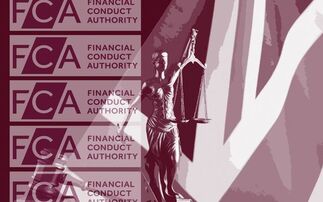The Financial Conduct Authority (FCA) and the Prudential Regulation Authority (PRA) have launched enforcement investigations into failures at the Co-operative Bank which led to it receiving a rescue package of £1.5bn from its parent company.
The move could result in substantial financial penalties being imposed on the bank and its former directors if they are found to have acted recklessly while at the helm.
The regulatory probes dovetail into a host of other ongoing inquiries into the bank, such as the Treasury Select Committee's, which will hear evidence from FCA director of supervision Clive Adamson about the institution on Tuesday.
The previously-mutually-owned bank suffered from the result of its merger with the Britannia Building Society in 2009, which largely created the bank's £1.5bn blackhole from toxic assets such as commercial loans.
The bank agreed with the PRA that it would raise cash via a ‘bail in' - a process where loans to the group are converted into shares which will be listed on the London Stock Exchange - in June last year, after its debt was downgraded to junk status.
It accounced a further rescue deal in November, which saw the group's creditors get about 70% of the bank's shares, leaving Co-op with 30%.
The police have also launched a separate investigation into former Co-op Bank chairman Reverend Paul Flowers who is accused of taking class A drugs.
The bank itself has launched an internal review of its governance to be led by former Treasury financial secretary Lord Paul Myners.
The PRA said its investigation and the independent review announced by the Treasury will be sequenced so as to avoid prejudice to any actions that the regulators may take.











